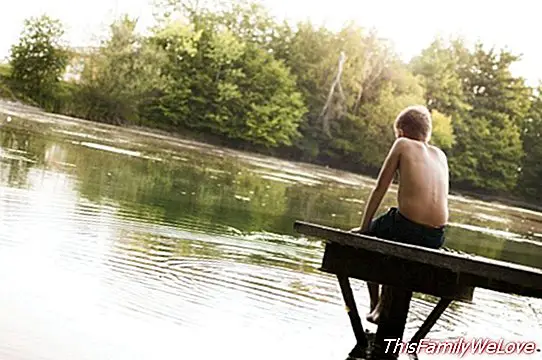Bullying continues in summer camps

The long awaited holidays arrive for schoolchildren and this is reason for joy for most of the children, but even more for those who have lived bullying situations.
However, these young people whose lives in the institutes have been, in many cases, a hell, can face harassment, mockery, humiliation and discrimination again. summer camps or in extracurricular activities typical of the summer months.
Bullying during summer school holidays
These situations of bullying occur in different ways, even in summer.
1. Bullying on vacation. In the first place, the harassment that started during the school year can be increased during vacations, since the stalkers have more free time and without defined schedules.
In these cases, bullying usually continues through social networks and mobile phone messaging applications (humiliation, insults by WhatsApp, creation of false profiles to mock the victim, etc, etc ...) with more intensity if possible during the school year.
2. Bullying in summer camps. Secondly, bullying can also occur in summer camps or neighborhoods, where there are more activities less supervised by adults, beyond their reach, producing spaces or points potentially dangerous for situations of harassment.
In this sense, the harasser simply maintains the same behavior patterns that he has developed and executed in the educational center, transferring them in this case to the summer camps.
Therefore, the problem is exacerbated if the child molested coincides with the aggressor or group of aggressors in the camps, something that, on the other hand, is quite common, because it is usually the same centers that organize these extracurricular activities.
In this sense, there is an increase in petitions and inquiries from parents, related to children who feel harassed by their peers in some of the activities organized by the centers and are usually held during this time, who are concerned that their children live with them. the same children as in the schools and the harassment continues, so they ask for advice in these situations.
In addition, in these activities children enjoy more time alone, moving and interacting in less crowded areas, with which there is a more likely that episodes of harassment are reproduced; harassment, on the other hand, carried out by the harasser and / or his group of participants or when the harasser himself has established his nucleus of friendships and puts the group against the newcomer.
3. Bullying due to social isolation. Third, it may be the case that the minor he comes to the camp again and does not know anyone, awakening the attention of the potential aggressor for the reason in question, beginning to perform approximation actions and signs of harassment.
This persecution that the victim begins to experience does not necessarily have to be physical, through blows, pushes or aggressions, but more subtle and, therefore, more difficult to detect.
The most characteristic example of this type of harassment is social isolation, more typical of girls, but also carried out by the male gender. A sample of this are the jokes referring to clothing, brands or clothing used, since minors are very influenced by the dictates of fashion and image.
In the eyes of adults this may seem like a trifle, but for minors it is not, at all. In fact, this type of behavior or behavior that is also observed in the school year, continues in the summer in its parallelism: brand shoes, swimsuits, shorts, accessories, etc.
Problems to build the adolescent identity
However, not only that, the construction of adolescent identity, fears and insecurities also manifest themselves in the summer period, aspects that are used by the aggressors in the activities of summer camps or colonies: looks and ridicules on the body itself. young, laughter, malicious comments, exaggerated or oversized on "supposed defects", more visible or appreciable with little or less clothing, etc.
So, the summer camps which are a good option to enhance the social relationships, search for new groups and a positive experience to coexist with other young people, they can become potentially dangerous spaces, especially if in the group the alleged child molester is found or the child's self-esteem has not been sufficiently fostered.
In these activities children spend more time alone and they do not usually have specific training on bullying, but in many cases neither the schools that organize them are familiar or specialized in the subject.
In this sense, although in the summer camps and after-school activities there is good control by monitors and teachers, it is necessary that they receive specific training in measures of prevention and intervention in the face of harassment, awareness-raising courses and training, to identify and regulate these abusive behaviors, which can lead to psychological or physical harassment.
Training that, on the other hand, should also be extended to families, facilitating in this way a coordinated action between them and the professionals, before any indication or suspicion of warning signs, which make foresee a possible situation of harassment towards minors.
Ricardo Lombardero Calzón. Lawyer, Mediator and Coach. Cofounder of Lomber Soluciones Cyberbullying




